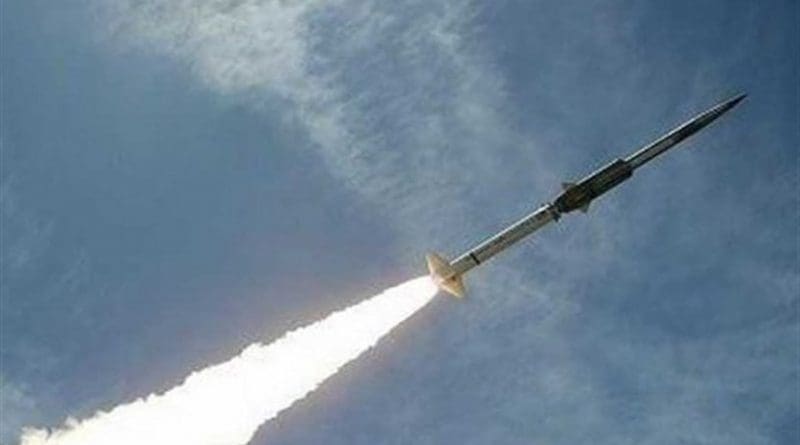Hezbollah Connection: Missile Chain Of Evidence From Tehran, To Lebanon To Houthis
By Arab News
Eight Hezbollah militants from Lebanon have been killed in a Saudi-led coalition attack in Maran in northern Yemen, near the Saudi border.
The presence of Iran-backed Lebanese Shiite militia members in the Houthi stronghold of Saada province supports the coalition accusation that Tehran supplies ballistic missiles to the Houthis, and Hezbollah technicians launch them at targets in Saudi Arabia.
“The coalition killed 41 terrorist elements in Maran and destroyed their vehicles and equipment. Among the dead were eight members of Lebanese Hezbollah, including a commander,” coalition spokesman Col. Turki Al-Maliki said on Monday.
Dozens of missiles fired from Yemen into Saudi Arabia have targeted Riyadh, Makkah and the southern cities of Jazan and Najran. After one attack last November, the Saudi Foreign Minister Adel Al-Jubeir accused Hezbollah of being responsible.
The coalition has produced evidence that the missiles are made in Iran, including fuel delivery mechanisms with Iranian labels.
Missile parts are smuggled into Yemen through the Red Sea port of Hodeidah, and coalition forces launched a military offensive on June 12 to wrest control of the port from the Houthis.
Saudi officials have consistently maintained that their military intervention in Yemen is a war of necessity, not a war of choice, said Fahad Nazer, a Saudi political analyst and an International Fellow at the National Council on US-Arab Relations.
“The fact that the Houthis continue to fire Iranian-supplied ballistic missile at civilian targets across Saudi Arabia, including as far as the capital Riyadh, is proof that the Houthis do pose a serious threat to the security of the countries in the region, including Saudi Arabia,” he told Arab News.
“The Houthis have repeatedly shown a callous disregard for the safety and well-being of the people of Yemen, so it is not a surprise that they are showing the same disregard for the laws of war by targeting civilian infrastructure in Saudi Arabia.”
Nazer was in Riyadh in April, when the Houthis fired a ballistic missile which was intercepted over the Saudi capital.
“While these attacks do not disrupt life in the Kingdom, Saudi Arabia is well within its rights to take every measure necessary to make sure that its civilians and infrastructure are not vulnerable to the whims and callousness of this militant group,” he said. “It is not an accident that the legitimate government of Yemen and the Saudi-led coalition have the support of the entire international community.”
In Riyadh, meanwhile, the clear-up continued after the most recent attack on Sunday night, when Saudi air defenses intercepted two missiles over the capital.
Debris fell near the US mission and at a school in the diplomatic quarter, and on the roof of a private residence, but there was no serious damage.
Coalition spokesman Al-Maliki said the alliance’s advances on Hodeidah and other fronts were pushing the Houthis to try to project strength through such attacks.

